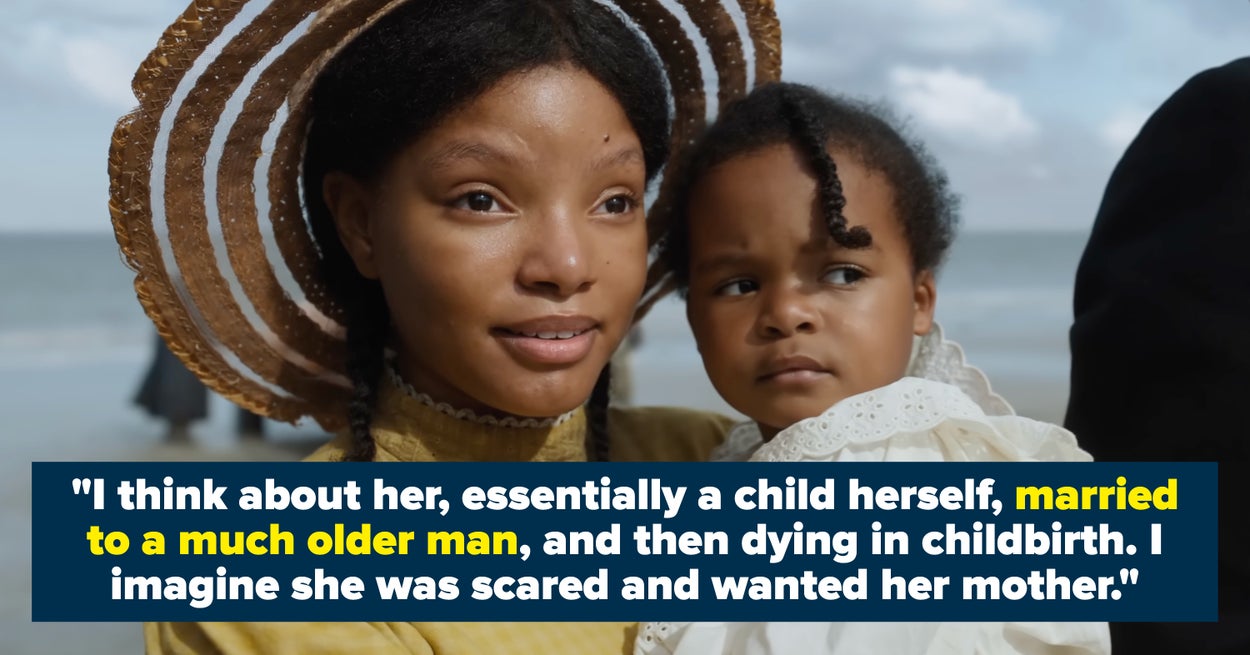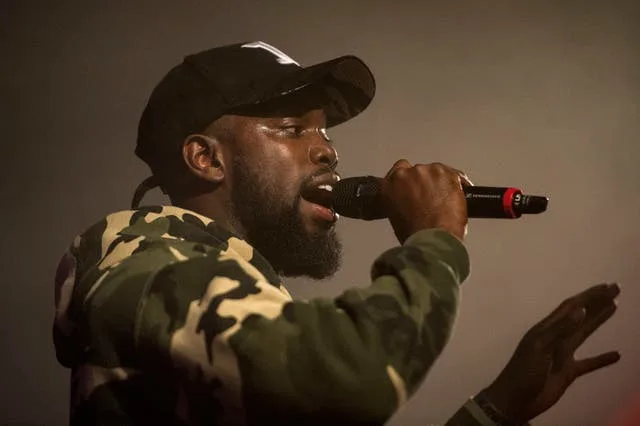Copyright BuzzFeed

People Are Sharing The Most Heartbreaking Historical Facts About Women They Personally Know, And I Don't Think The Lump In My Throat Can Get Any Bigger "I put two and two together and asked if that was what happened to her, too. Without missing a beat, she said, 'Oh, yes.'" Warning: This post includes stories about domestic violence, sexual assault, rape, child sexual abuse, and baby abuse Across generations, women have endured things most of us can barely imagine — and for a long time, those stories were never told out loud. But now, we asked members of the BuzzFeed Community to share the heartbreaking, deeply personal histories of the women who came before them — mothers, grandmothers, and great-grandmothers whose lives were shaped by the times they lived in, and the impossible choices they had to make. From being denied an education to surviving violence, forced marriages, and unimaginable loss, these stories show not only how much women suffered, but how much they endured. They're not the kind of histories found in textbooks — they're the ones passed down quietly through families, and they'll stay with you long after you read them: 1. "My great-grandmother was dressed and ready to start her first day of high school. As she came downstairs, she was told that she would not be going to school. She was old enough to start working at the family restaurant." 2. "My mother-in-law, who was a wonderful woman, used to say she quit teaching when she got pregnant — she made it sound like it was her choice. When Elizabeth Warren was running for president back in 2016, she said she was fired from her teaching job because she got pregnant. I put two and two together and asked my mother-in-law if that was what happened to her, too. Without missing a beat, she said, 'Oh, yes.' She added that in those days — 1968 — maternity clothes were very obviously maternity clothes. She waited as long as possible to buy them because she knew what would happen. And sure enough, the day she showed up in maternity clothes was her last day teaching." —Anonymous, 53, AR 3. "My grandmother got a divorce in the late 1930s because her husband beat her and choked her until she passed out. She kept it a secret until one day, while walking through a cemetery to visit my great-grandmother's grave, she came across his tombstone. She stopped for a second, then, on the way back, said, 'I hope you're burning in hell.' I asked why, and she told me the story. She said when she met my grandfather in the early 1940s, she was afraid he wouldn't want to marry her once she told him she was divorced — it was such a taboo thing then. He married her anyway, and they were together for 59 years. No one knew about her first marriage until that day in the cemetery." "I'm still so proud of her for walking away in a time when it was considered acceptable for men to beat their wives." —Anonymous, 44, KY 4. "My grandmother was the second-oldest girl in her family, and the oldest girl didn't go to school so she could help with the younger children and on the farm. When her older sister died, my grandmother was forced to quit school. She was in second grade. She always regretted not getting an education, but she taught herself how to read at an adult level, how to handwrite, and how to write effectively. She was smart. It was such a shame she didn't get to continue with school." 5. "I was doing genealogy research and came across records of a many-times-great-grandmother. She was 18 when she married, and her husband was in his late 30s. When I found the birth record for her child, it showed the child's birthday was also the date she died. I think about my ancestor — essentially a child herself — married to a much older man and then dying in childbirth. Even though I know little else about her, I imagine she was scared and probably wanted her mother. I hope she had some love and comfort in what must have been a terrifying time." —Anonymous, 30 6. "My great-grandmother emigrated to the US at 19 to marry a man already in his 30s. He was from the same village as her in Hungary. She had two children, and then during the Great Depression, he died, leaving her a single mother with two kids. She pawned the diamond in her wedding ring and married another Hungarian immigrant to keep her children fed and her husband's auto shop and gas station afloat." —Anonymous, 41, ON, Canada 7. "My father never talked about his mother. Years after he died, my sister told me that one time after drinking, he mentioned that his mother had abandoned him. I did know that when he was 6, my father was taken to meet his father, and his father wouldn't even look at him. Soon after that meeting, he ended up in an orphanage — this was just before the Great Depression in Appalachia. When my children and I took DNA tests, we found out that my father's father was a prominent businessman, married, and had eight legitimate kids. My father's birth certificate listed my grandmother's ex-husband — she was not married when my father was born. The sad truth is that my grandmother didn't abandon my father — she was committed to a state mental institution where, per census records, she lived at least 25 years." "Did she have a mental illness? Maybe. But at the time, 'inconvenient' women who went up against powerful men were sometimes sent to mental hospitals to get them out of the way. We will never know. Records for the time she was there were burned in a fire." —Anonymous, 68, HI 8. "My mother, born in 1950, became pregnant in her junior year of high school and was sent to a convent to give birth, missing her senior year and having to give the baby up for adoption. She had three siblings, two sisters and a brother. My grandparents refused to fund college for their daughters, saying women didn't need higher education, but they paid for their son. My mother tried to be fair with me and my brothers, but over the past decade, I've come to recognize her ingrained misogyny. There were countless moments when I wasn't 'good enough,' or when she made hurtful jokes about me being too emotional because I'm not a guy. I've spent years low-key hating myself for not being born male." 9. "I saw an article earlier this year that scientists believe we get our intelligence from our mothers. I realized then that my mother could have contributed so much if she'd only had half a chance. She was born in 1927, so by the time she would have started school, the Great Depression had already begun. Her family was so poor that everyone had to work so they could have food and lodging. My mom was a teenager when she had her first baby. It was the kids who taught her how to add and subtract and how to sign her name. She never learned to read. I was a good student as a child and went on to become an engineer. I get my smarts from her — if only she had had the opportunity." —obh3skadoo 10. "My mom, born in the early '60s, once casually told me she slept with a man when she didn't want to because he refused to leave her apartment otherwise. She said she was afraid he'd rape her if she didn't. It was heartbreaking to hear her minimize such a traumatic experience and frame it as something she was equally to blame for." —Anonymous, 32, NJ 11. "My grandmother left school after the fifth grade and started to work in a filthy Cracker Jack factory. This was in the 1910s, before food hygiene laws, so there were rats and rat feces everywhere. She was married off when she was either 14 or 15 and had a baby before she was 16. That baby died of meningitis. Both families fought over whose fault it was, each blaming the other parent, causing bad blood between them that lasted through the birth of their four other kids and until her husband died an early death from cancer. She was left regretting their bad relationship. When she grew older and sicker, were any of the people who caused the breach with her husband ever present? No, they were not." —smogmonster 12. "My grandma was a teacher who looked out for her students and cared about all children. During the civil war, the militia would kidnap literal children — ages 6 to 12 — and train them to use weapons to fight the government. She worked at an all-girls primary school next to the national university, which was a breeding ground for the militia. One day, a group of boys with makeshift guns jumped the fence, fleeing the military. They pointed their guns at her and demanded that she hide them inside a classroom full of 12-year-old girls. She agreed, but only if they promised to leave their weapons and go home later. She hid them in the classroom closet. When the government police arrived and questioned her — gun pointed at her head — she managed to convince them no one was there." "The boys in the closet left at the end of the school day holding hands with the girls, pretending to be their brothers, until it was safe. She saved a dozen little girls that day and three preteen boys who should never have been in that position. She's 96 now, and that's one of the stories I'll never forget." —Anonymous, 36, El Salvador 13. "My mother was born in 1949. She was an excellent student and wanted to study English. But because families didn't talk about sexual abuse or even sex at that time, she didn't know how to name what was happening to her. She was molested by three different close family members before she was 12. She didn't realize it wasn't normal until her 40s, when she saw an episode of Oprah about childhood abuse. She finally told my father. As a child, not knowing how to handle the emotions from the abuse, she acted out sexually as she got older. She became pregnant at 15, a sophomore in high school. When the school found out, they forced her to drop out. Her parents wanted to take her child and raise him as her brother, but she refused. By 19, she had two more babies by different men. She was shamed and ostracized." 14. "My great-great-grandmother was an Indigenous woman who fell in love with an Indigenous man. She was a survivor of a residential school and worked as a house cleaner for nearby white families. Her husband was not a good man — he had multiple wives and children. She bravely took him to court in New York State to sue for child support. When I read the old newspaper, there was more written about how 'white' her clothing was than about why she was there." —Anonymous, 41, ON, Canada 15. "My mom's first marriage was breaking up when she had my sister in 1970. She was in the hospital on Valentine's Day, and the nurses came around and gave a rose to all the new moms. Except my mom, because she wasn't there with a husband. So she's all alone in the hospital with her new baby, her husband is missing in action, and these judgmental nurses decide she's not deserving of a rose. It still makes me sad to think about." —comfyjaguar6385 16. "It was me, a senior in high school in the '80s. I was accepted to a very prestigious art school, but my father — who had promised to pay for my education — made it nearly impossible for me to attend. I had to commute, get a part-time job, and cover all expenses besides tuition. I had no way to pay for college on my own, since he'd always said he would. He told me that girls don't need as good an education as boys because they'll just get married, get pregnant, and stay home, making an expensive education irrelevant. So I went to a state school instead, and he paid for everything. I never bought a used book and always got the best supplies. I was determined to stick it to him in any way I could and make the most of my education." "For the record, I did get married and have a baby — but I still worked. My male art teacher in high school once told me to 'love the one you're with' and suck it up. That experience taught me to settle, to devalue myself, and to live my life to please others, especially men." —bubblyglue4988 17. "This is an old one, but my 13th great-grandmother was Old Demdike, an accused witch in England. She died in imprisonment, and her whole family, except one, was murdered and hanged — otherwise known infamously as the Pendle Witches." 18. "My great-grandmother — my maternal grandmother's mother — had brain surgery in the 1940s that I suspect was a lobotomy. She had a tumor that caused strange behavior and difficulty with certain tasks. After the operation, she was a completely different person. Apparently, nothing she said made sense anymore, and she couldn't take care of herself. Her husband sent their children to boarding school so they wouldn't have to see her that way. She died only a few months after the operation. What haunts me most is knowing that this awful thing, which we now know was harmful and cruel, was done in good faith to help her. It also haunts me knowing that during the height of lobotomy popularity, they were performed more on women than men." "I can't help but wonder if she would have had the same 'treatment' if she were a man, or if doctors would have even listened to her own input on her medical care over her husband's." —Anonymous, OH 19. "My great-great-grandmother on my mom's mom's mom's side left Italy with my great-grandmother and some siblings and ended up a widow in Wisconsin. So she married the uncle of her late husband (who was younger than his nephew) and then left his drunken butt — with something like seven surviving kids, most of them in diapers between the first and second batch of children — on a train from Wisconsin to Vermont by herself. What a journey that must have been! She set up a grocery store, and they lived above it. She only spoke Italian, so the kids had to translate for her. Ultimately, only two girls (including my grandma from the first marriage to the guy she loved) and one boy survived to adulthood. My aunt, born in 1905, went to college. She was a childless but very successful social worker who made good investments. My great-grandma was a well-respected podiatrist in Bangor, Maine. She also went to college and was born in 1900." "My aunt made it to 95, so she passed in 2000. She was like a grandmother to me and my mom and a second mother to my grandmother, who disappointed her mother by dropping out of college in the mid-1940s to marry my grandfather. All are interesting ladies. My mom, ironically, was class valedictorian in 1964 but never went to college as her parents wouldn’t support her doing that unless she was going to be a nurse, social worker, or teacher (I love my mom, but she is very much not suited to those careers). Somehow, the women on that side of my family were more progressive 125 years ago than now, as neither I nor my mother has a college degree." —heatherchristie1 20. "My Mima was the most beautiful soul that ever lived, but she had a tragic childhood. She was born out of wedlock in 1923, and her mother considered her a stain on her existence. She eventually sold my Mima to a traveling caravan group when she was little. My Mima's aunt and uncle rescued her and lovingly raised her for several years before her mother married and decided she wanted her back. She was still treated poorly, but she went on to become the kindest human anyone who ever met her knew. I think she wanted to make sure everyone she met was shown some kindness and love because she knew what it was like to live without it." —Anonymous, 38, IN 21. "In 1950, my mom had to sign an agreement with her new employer saying she wouldn't get married for one year. Fortunately, my dad got drafted, and they chose to wait until his enlistment was up." 22. "My grandma was kidnapped by my grandpa when he was 32 and she was 16. She was walking to the bank when he sent two friends to grab her off the street and put her in his car. He took her to his house, which was inside a walled compound, and didn't let her leave until she said yes to his marriage proposal. What a gentleman. A year later, she agreed to marry him, and a year after that, she gave birth to a son who died six months later. She went on to have seven more children. My grandfather later died at 83 of Alzheimer's, and my grandma was his caretaker during his last year. He spoke seven languages fluently, and as he slipped farther from his old self, he began speaking in English, Arabic, and Russian — all languages my grandma didn't understand. She watched her husband slip away and couldn't even speak to him at the end." "Since he died 13 years ago, she's been in a depressive state. This all took place in the mid-1950s in Addis Ababa, Ethiopia. Things were a lot different then — none of the above was illegal or even greatly frowned upon." —Anonymous, 17, ON, Canada 23. "My maternal grandmother lost a baby at birth. She was delivering in a hospital, but the doctor wasn't there yet, so the nuns shoved pillows between her legs to delay the birth. The baby died from a lack of oxygen. They told her the baby was stillborn, and she never got to see him. The only reason she knew it was a boy was that a nurse who had been in the room found her later and told her what happened. The nurse said the baby was perfect and that she was so upset by what happened, she quit her job. She felt my grandmother deserved to know the truth." —Anonymous, 40, NY 24. "My mother was not wanted. Her mother, my grandmother, had one pregnancy in 1930 and a traumatic birth that made her never want to get pregnant again. Without access to birth control or education about avoiding pregnancy, she eventually conceived again and gave birth to my mother eight years later. Some mothers might have learned to love the unwanted child, but my grandmother never accepted her daughter. She wanted nothing to do with her, so her father became her primary caretaker. The pain of being unwanted stayed with my mother her entire life." —Anonymous, 52, MI 25. "In the 1920s, when my great-grandmother Mildred and her sister Elizabeth were teenagers, their father died unexpectedly. Determined to support their family, the sisters enrolled in nursing school and graduated with honors. They left their home in New Jersey and moved to Miami, where they worked at Jackson Memorial Hospital. One night, Elizabeth became gravely ill. The overnight medical intern suspected appendicitis. Confident in his abilities but lacking surgical experience, he decided to perform the appendectomy himself instead of waking the attending physician. He removed her appendix before it ruptured, but perforated her intestines during surgery. Infection set in, and within days, Elizabeth died." 26. "My maternal grandmother died when my mom was three because of an infection from an illegal abortion. Her father died when she was eight — cause unknown. My mother then died at 49 from an undiagnosed brain tumor. Rotten luck on that side of the family. It's hard not to be a little paranoid, but I've lived longer now, so I figure it wasn't something in our genes — just rotten luck." —Anonymous, 66, Australia 27. "My grandmother was kicked out of school at age 7 for being Jewish in 1940. Though she didn't go to a concentration camp and didn't have a tattoo on her arm, she survived the Nazi regime. The experience left her deeply traumatized, but she harnessed that pain into a meaningful career. She became a special education teacher and made sure her students were seen and heard. She inspires me to listen to all individuals and to do the right thing in the face of adversity." —Anonymous, 29, NY 28. "My great-great-aunt had a husband who dug her grave near the barn. In case she didn't follow his orders, the threat was there to keep her in line. It worked. The good news is he died before she did, and she ended up owning the farm." 29. "My mom's aunt died having an abortion because they were illegal at the time, and she couldn't get the proper care to make it safe." —Anonymous, 58 30. "My mother was very brave. She was white and married my father, who was Black, in 1946 while he was stationed in Europe during World War II. They migrated to America shortly after they got married. They lived in Virginia as a mixed-race couple and endured unspeakable racism. My mother wanted to go home, but she had lost touch with her family in Europe. Fast forward 44 years: she was contacted by an attorney from her hometown in France regarding a small inheritance she was due. The attorney forwarded correspondence to her lost sister. My mother went to visit her sister, and they reconnected after 45 years." —Anonymous, 65, FL These stories are painful, but they're also reminders of the strength and resilience that run through generations of women — even when no one was watching, and no one was listening. If you've heard similar stories about the women in your family, share them in the comments or in the anonymous form below. Your story might help keep their memory and their strength alive.



